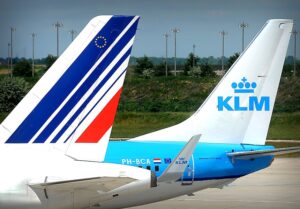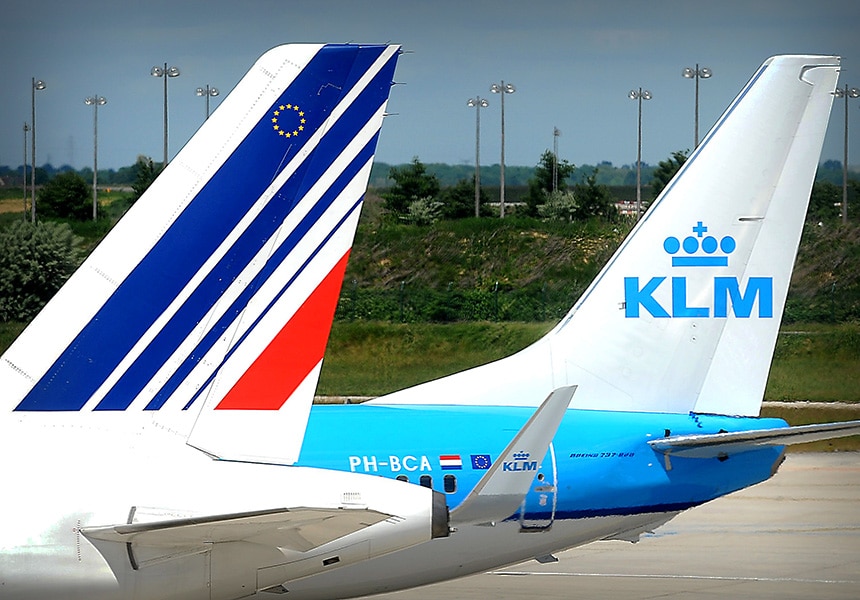 Air France-KLM has announced some details of its revamped Flying Blue loyalty programme effective 1 April 2018. This is the latest in a slate of programme revamps by major carriers on both sides of the Atlantic over the last few years.
Air France-KLM has announced some details of its revamped Flying Blue loyalty programme effective 1 April 2018. This is the latest in a slate of programme revamps by major carriers on both sides of the Atlantic over the last few years.
This article was originally posted on Loyalty Advantage
We think Air France-KLM has executed a balanced revamp. The changes favour certain groups of flyers, continue to emphasise loyalty to the airline, do not overly penalise existing elite members, and are being communicated with the right messaging and tone. The revamped Flying Blue is positioned to serve the group’s increasingly diverse business and meet the competition.
Notwithstanding the shift to a revenue-based structure, there is no change to the effective earn rate bonus enjoyed by elite members, and the spread in earn rate between the highest and lowest fare types remains roughly similar.
Flying Blue has not revealed the details of its dynamic award pricing, but we know that award flights will be bookable on its subsidiary brands Hop!, Transavia and Joon, and the new Miles & Cash payment option will have a 25% cap on payment with cash. Miles can soon be earned and redeemed on ancillaries.
Beyond earning and redemption, it is the changes to status qualification that stand out. Today members qualify for status through earning distance-based miles (with earn rates differentiated by fare type) or segments. Instead of introducing a tedious combination of segment, dollar spend and/or mileage qualification thresholds as with similar programmes, Flying Blue has instead created a flat structure where members earn “XP Points” with earn rates differentiated by segments, distance and cabin classes.
It is now generally harder to qualify for status, but certain groups of flyers will benefit. Because XP Points earn rates are differentiated by cabin class but not fare type, all passengers purchasing lower fares will earn the same number of points as those purchasing full fares on the same routes and cabin classes. Members who today depend on accumulating segments for status, especially short-haul flyers within Europe, will have additional ways of earning XP Points more quickly, such as through the occasional long-haul or premium class tickets.
The above changes seem punitive to more profitable members who purchase mostly full fares. But they also make the programme friendlier to less-affluent travellers. This could be an attempt to woo younger and budget-conscious customers into the programme, and Air France-KLM may have calculated that the long-term benefits of member acquisition outweigh the risks of passengers down-trading.
The revamped Flying Blue also changes the way it calculates status qualification period, from the calendar year to a rolling 12-month period. The details are complex, but the impact is that while high-spending members will take a longer time to rise from the basic (Ivory) tier to the top (Platinum) tier, it is not necessarily harder for existing elite members to re-qualify. This culls the growth rate of Gold and Platinum members over the long term but does not penalise existing elites.
There is also a new two-track mileage validity rule that privileges activity with the core programme carriers, SkyTeam partners and co-brand credit cards over activity with other air and non-air partners. Members who earn miles predominantly from the latter activity will only be able to extend mileage validity for their balance earned from the latter activity. The reverse is not true – members who have at least one transaction from the former activity every 2 years will have the validity of their entire mileage balance extended.
What do the changes we've highlighted above mean for Air France-KLM as a business?
It is conventional wisdom by now that the “enhancements” introduced during a revamp into a revenue-based programme, from higher-priced awards to higher status qualification thresholds, have led to an erosion of overall member benefits and tilted the programme towards high spenders and premium passengers.
That said, it seems that Air France-KLM is finding the right strategic balance between strengthening the financial position of its programme, meeting the changing needs of its business, and delivering customer engagement and value.
First, Air France-KLM has a growing number of brands including soon-to-be-launched Joon, its self-styled cool leisure airline for millennials. The programme must now work for a wider spread of customer demographics, be it age, income or lifestyle. Loyalty programmes that serve a diversified brand portfolio either have not evolved enough to address this challenge, or over-compensate by introducing unnecessary complexity. Flying Blue appears to have avoided this trap for now. Revenue-based earning and the new status qualification structure are simple enough. Flyers have a bit more flexibility in how they qualify for status through various flying patterns.
Second, Air France-KLM has stuck closely to the core mission of loyalty programmes, which is to generate and reward customer loyalty instead of monetising miles through commercial partners. The new status qualification and mileage validity rules are designed to further differentiate frequent flyers on its carriers and key partners from mere “mileage chasers”. The 25% cap on paying with cash and the longer status qualification timeframes mean that members need to be engaged with the programme for a longer period to be able to enjoy either benefit.
Finally, the microsite’s streamlined content, comprehensive FAQs, and the withholding of some details for now, suggest that much thought was given into prioritising the communication of the key changes to ensure that the message sinks in but does not overwhelm. Its look and feel might also suggest an opportunity for the programme to use this revamp as an opportunity to refresh its branding to meet its new mandate of reaching out to a more diverse, likely younger, set of customers.
The revamped Flying Blue has the potential to meet the challenges of business diversification and carrier competition effectively. This is critical because a segment of younger flyers will shift their travel habits towards longer-haul or more premium travel over time. A streamlined, consistent, engaging and flexible programme experience is key to ensuring that they remain loyal to the Air France-KLM group over their member lifecycle, and less likely to migrate to the competition in the long run.
The announced changes are the right first step in delivering these objectives, and we hope that the remaining details to be revealed will complement them.


